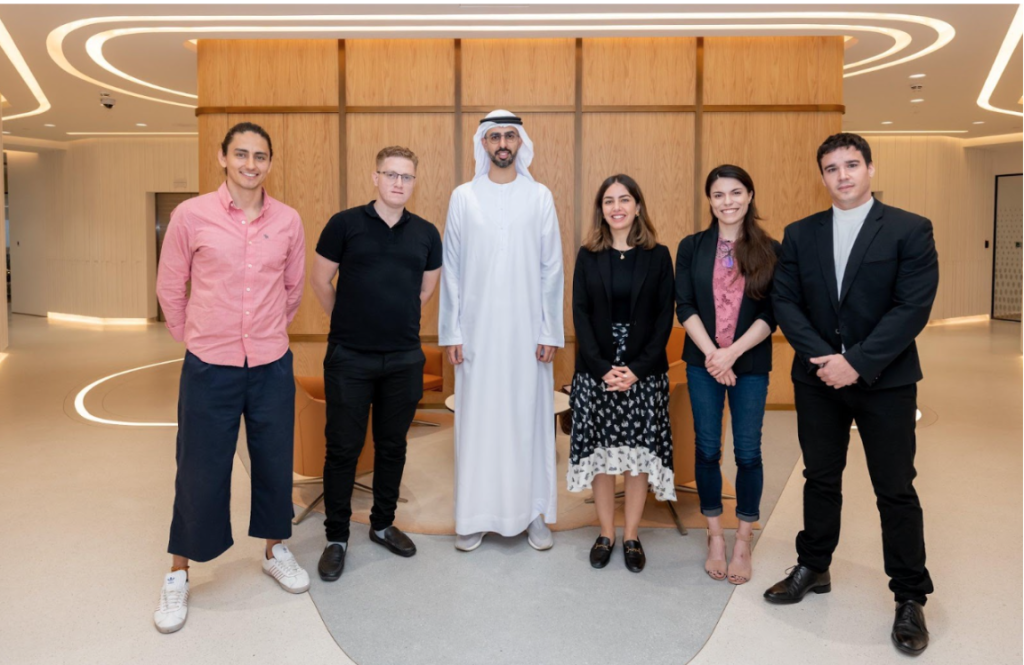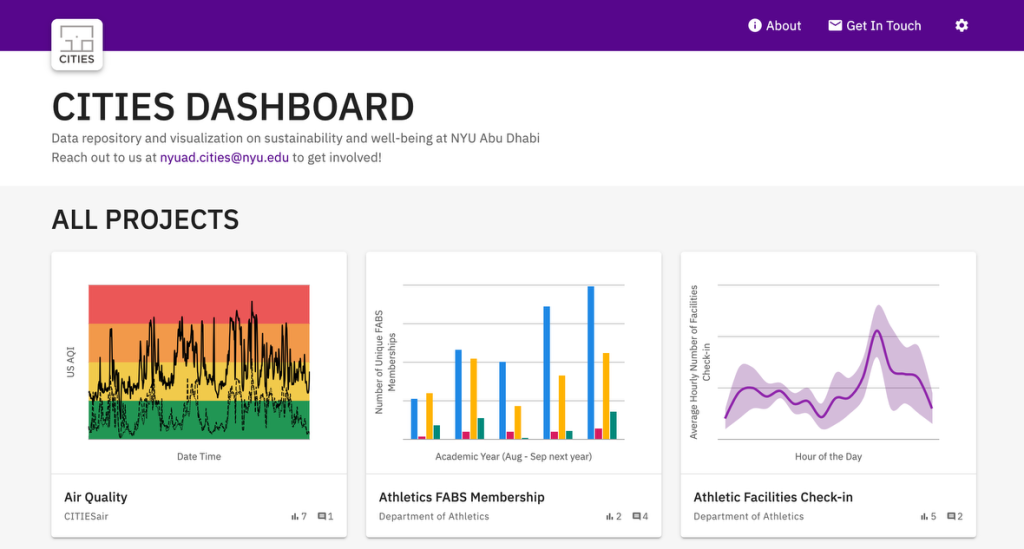CITIES’ NEWSLETTER: ISSUE #9 Unlocking Urban Frontiers: Interdisciplinary Research at the Intersection of Urban Science and Cybersecurity

CITIES Research
The Center for Interacting Urban Networks (CITIES) at New York University Abu Dhabi (NYUAD) is an interdisciplinary research center dedicated to advance urban science and promote cutting-edge research that is translated into practical, real-world solutions for the benefit of society. Our ultimate goal is to foster sustainable, resilient, and equitable cities with a particular emphasis on Abu Dhabi and the UAE.
This newsletter offers an overview of CITIES’ cutting-edge new research projects activated in collaboration with the Center for Cybersecurity and a preview of the CITIES’ Dashboard.

Towards secure and trustworthy artificial intelligence in healthcare
Farah E. Shamout, Assistant Professor of Computer Engineering, CITIES Investigator
Michail Maniatakos, Program Head of Computer Engineering, Associate Professor of Computer Engineering, CCS Co-Pi, CITIES Investigator
Artificial intelligence (AI) applications in healthcare are expected to improve patient diagnosis, prognosis, and treatment, especially in large-scale nationwide programs that access large-scale datasets. However, due to the sensitive nature of medical information, data exchange presents its own challenges. First, medical institutions may lack the technical infrastructure to exchange data securely. Second, ransomware attacks that seek to expose protected health information extend to AI systems at deployment.
In this project, we develop and evaluate components of a privacy-preserving collaborative learning framework that can be applied in UAE nationwide programs that rely on data exchange, such as health screening. Through this project, we aim to develop more accurate, robust, and compact deep neural networks, collaborative federated learning frameworks that enable data sharing, and improved privacy-preserving frameworks that cater for the characteristics of clinical data, e.g., multi-modality, missing data.
As policy and regulation pertaining to medical data develop, this study will provide the basis for novel and secure data transfer and collaborative learning frameworks that can facilitate the exchange of a wide variety of sensitive data within smart cities.

Exploring threats of malicious insiders to Common Data Environment (CDE) using Game theoretic models
Borj García de Soto, Assistant Professor of Civil & Urban Engineering, CCS & CITIES Investigator, Sanjeev Goyal, Professor of Economics, CCS & CITIES Investigator & Khiangte Lalropuia, Post-Doctoral Associate
In recent years the architecture, engineering and construction (AEC) industry has witnessed rapid digitization of data and the adoption of information and communication technologies. Digital Twins, Building Information Modeling (BIM) and Common Data Environments (CDEs) facilitate stakeholders’ visualization and access to data during the different phases of construction projects by centralizing data storage and access as part of BIM workflows. This efficient data access results in effective stakeholder collaboration and ultimately benefits our built environment.
All these changes offer many opportunities to improve efficiency and productivity, but they also provide an attractive target for cyber-attackers, particularly malicious insiders authorized to access the new tools. Insiders can be motivated by various factors, such as financial gain, espionage, etc., to do malicious activities that render CDE highly insecure and compromise the confidentiality, integrity, and accessibility of sensitive data. A significant challenge is that insider behavior is not completely known; that is, an insider can either act as legitimate or malicious to carry out an adversarial act. To address this, this study considers the interactions between an insider and the data defender of CDE and proposes incomplete information game models to study malicious insider behavior toward sensitive data stored/shared in a CDE. The goal is to predict malicious insider behavior and determine the best defense strategies. Preliminary findings from this study have been presented at the 7th Annual Graduate & Postdoctoral Research Showcase.
CITIES Digital Initiatives
CITIES leverages the NYUAD Campus to create a cutting-edge field lab for the community. We have built, and are constantly improving, a framework for instrumentation, experimentation, and data sharing at NYUAD. The data we collect is accessible through different platforms including the CITIES Dashboard.

Soft Launch of the CITIES Dashboard
Dr. Federico Bernardini, CITIES Assistant Director
Vince Nguyen, CITIES Research Assistant
Prince Ampofo, Min Jie Kim, Jennifer Zheng, Jun Ooi, and Ritin Malhotra, CITIES Student Assistants
CITIES is proud to announce the soft launch of the CITIES Dashboard. Fill out the survey to help us improve the user experience.
The CITIES Dashboard aims to empower data-driven sustainability and well-being at NYUAD. It is created by and for our community of students, researchers, faculty, staff, and partners. This initiative provides free access to campus-wide datasets such as air quality, food waste, and athletics data (with more to come soon), accompanied by easy-to-understand data visualizations of such datasets.
As we publish the first iteration of the CITIES Dashboard, we invite you to explore the existing data and carefully-crafted visualizations and fill out our user experience survey for a chance to win an Amazon voucher. The dashboard will evolve over time. Your valuable feedback will help us to improve its user experience iteratively.
CITIES Research Outputs
You can access the whole list of CITIES publications and other research outputs using this link.
Stay tuned for the Issue #10 of our newsletter that will come out in October, 2023.